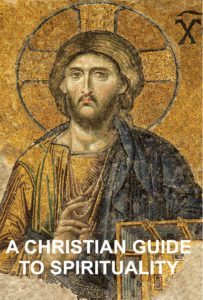Stephen W. Hiemstra's Blog, page 108
August 8, 2021
Faithful Promises
[image error]
Wedding of Rui Ma and Stephen Kane, Boyds, MD
Jeremiah 29:11; 1 Corinthians 13:4-8
Have you ever thought about how our lives are shaped by the good promises we make and keep?
On the way to work one day I wondered who promised me that when I arrived at work that morning they would let me in the building. It was no small deal because the checks I received each month put food on the table and made sure that the mortgage got paid on time—I depended on that promise. I am not sure what I would do if that promise were not kept. I remember how unsettling it was to see one of my co-workers walked to the door because he lied on his employment application about being a college graduate. While management was totally justified in firing him, the experience of seeing him fired was unsettling because it reminded me of how fragile our lives can be. We depend on people keeping their promises.
Marriage is one of the most important promises that we will ever make.
It is no accident that the Bible starts with the story of Adam and Eve. Marriage is a reminder that we worship a God who is known for keeping his promises, good promises. Our reading in Jeremiah 29:11 makes this point:
For I know the plans I have for you, declares the LORD, plans for welfare and not for evil, to give you a future and a hope.
The Bible promises us that the future is in Christ, we need worry about absolutely anything because we know the end of the story. We can take comfort in this knowledge. Imagine trying to study if you thought that the building you were in would collapse at any moment like the condominium in Miami—who could concentrate on anything? Our lives are shaped by the promises we receive and the promises that we make to one another.
This biblical promise is especially meaningful because it comes from the Prophet Jeremiah who witnessed the burning of Jerusalem and the carrying off of the people to Babylon—hence Jeremiah’s nickname, the Weeping Prophet. Interestingly, Jeremiah was the only Old Testament prophet to speak directly of the new covenant in Christ.
Marriage is one of the most important promises that we will ever make.
People love to read 1 Corinthians 13 at weddings. This chapter is the second of three chapters in 1 Corinthians that focuses on the nature of spiritual gifts. The key in interpreting this guidance on spiritual gifts is found in chapter 12: “Now there are varieties of gifts, but the same Spirit.” (1 Cor 12:4 ESV) The Holy Spirit is the giver of these spiritual gifts that are not so much dropped on us from heaven as sought after in an active prayer discipline and an obedient life.
As I read 1 Corinthians 13 again, think about love as a spiritual discipline:
Love is patient and kind; love does not envy or boast; it is not arrogant or rude. It does not insist on its own way; it is not irritable or resentful; it does not rejoice at wrongdoing, but rejoices with the truth. Love bears all things, believes all things, hopes all things, endures all things. Love never ends.
What makes this description of love as a spiritual discipline so distinctive is that Corinth was a city famous for its temple prostitutes. The first verse in chapter 13 gives this context away: “If I speak in the tongues of men and of angels, but have not love, I am a noisy gong or a clanging cymbal.” (1 Cor 13:1 ESV) Imagine attending a church where the prostitutes paraded by on the streets banging gongs and clanging cymbals—that was the problem in Corinth.
It is interesting that Corinth’s problem has become our problem. Our society has less and less respect for marriage as time passes, between the open promiscuity and attempts to redefine marriage itself. Think of the expression from the Mother Goose rhymes: rings on her fingers and bells on her toes, she makes music wherever she goes. Such music can be heard on our own streets. Given the Corinthian context and our own, it is important to think of love as a spiritual discipline.
Marriage is one of the most important promises that we will ever make. Let’s covenant together with God’s help to keep this promise. Amen.
Faithful Promises
Also see:
Believer’s Prayer
Other ways to engage online:
Author site: http://www.StephenWHiemstra.net
Purchase Book: http://www.T2Pneuma.com
Newsletter: https://bit.ly/Construct_2021
The post Faithful Promises appeared first on T2Pneuma.net.
Prayer Day 38
By Stephen W. Hiemstra
Gracious God.
Thank you for lavishing your love and generosity on us.
Grant us generous hearts and helping hands that we might reflect your image.
May our security be in You, not our possessions.
In the name of the Father, the Son, and Holy Spirit, Amen.
Prayer Day 38
Also see:
Believer’s Prayer
Other ways to engage online:
Author site: http://www.StephenWHiemstra.net
Purchase Book: http://www.T2Pneuma.com
Newsletter: https://bit.ly/Construct_2021
The post Prayer Day 38 appeared first on T2Pneuma.net.
Oración Dia 38
Por Stephen W. Hiemstra
Dios misericordioso,
Gracias por prodigar tu amor y generosidad sobre nosotros.
Concédenos corazones generosos y las manos que ayuden para que podamos reflejar tu imagen.
Permite que nuestra seguridad esté en ti, no en nuestras posesiones.
En el nombre del Padre, del Hijo, y del Espíritu Santo. Amén.
Oración Dia 38
Ver también:
Prefacio de La Guía Cristiana a la Espiritualidad
Otras formas de participar en línea:
Sitio del autor: http://www.StephenWHiemstra.net
Comprar Libro: http://www.T2Pneuma.com
Boletín informativo: https://bit.ly/Construct_2021
The post Oración Dia 38 appeared first on T2Pneuma.net.
Gebetstag 38

Vor Stephen W. Hiemstra
Gnädiger Gott,
Danke dass du uns mit deiner Liebe und Großzügigkeit überhäufet hast.
Schenke uns großzügige Herzen und helfende Hände, damit wir deinen Bild widerspiegeln.
Möge unsere Sicherheit in Dir sein, nicht in unseren Besitzen.
Im Namen des Vaters, des Sohnes und des Heiligen Geistes, Amen.
Gebetstag 38
Siehe auch:
Einleitung auf Ein Christlicher Leitfaden zur Spiritualität
Andere Möglichkeiten, sich online zu engagieren:
Autoren Seite: http://www.StephenWHiemstra.net
Herausgeber Seite: http://www.T2Pneuma.com
Mitteilungsblatt: https://bit.ly/Construct_2021
The post Gebetstag 38 appeared first on T2Pneuma.net.
August 6, 2021
Do Not Steal (Eighth Commandment)

“And you shall not steal.” (Exod 20:15) [1]
By Stephen W. Hiemstra
The story of the rich young ruler seems to bother Americans more than other biblical stories, most likely, because we are a wealthy nation. The story is found in all three of the synoptic Gospels. The story begins when the man asks: “What must I do to inherit eternal life?” Jesus responds by listing off the commandments having to do with loving our neighbors. The man responds saying: “All these [commandments] I have kept from my youth”—is there anything further I must do? Jesus replied: “Sell all that you have and give to the poor, . . . and come, follow me.” At this point, the man went away sad unwilling to respond to Jesus’ invitation (paraphrase) [2].
What does this have to do with not stealing?
Avoiding evil is not the same thing as being good. It is presumably less tempting to steal if you are wealthy than if you are poor. If you are wealthy and motivated by greed, you can delegate little acts of theft to subordinates or convince legislators to change the law to make little acts of theft legal. The rich young ruler no doubt truthfully answered Jesus’ question about the commandments.
However, what if the rich young ruler were a subprime lender and came to Jesus, what do you think he might say? Is it stealing to sell a mortgage to a poor person who probably cannot repay the loan? What if the probability of repayment is reduced by one percent? What about five percent? Before the 2007 financial crisis regulations were amended to make subprime lending easier. Was it enough to have complied with such regulations? What if you worked for the government?
Taking positive steps to be good is not easy.
The apostle Paul makes this distinction when he lists works of the flesh (vices) and lists of fruits of the spirit (virtues). He writes:
Now the works of the flesh are evident: sexual immorality, impurity, sensuality, idolatry, sorcery, enmity, strife, jealousy, fits of anger, rivalries, dissensions, divisions, envy, drunkenness, orgies, and things like these. I warn you, as I warned you before, that those who do such things will not inherit the kingdom of God. But the fruit of the Spirit is love, joy, peace, patience, kindness, goodness, faithfulness, gentleness, self-control; against such things there is no law. (Gal 5:19–23)
Paul’s list does not include stealing, but we all know which list that one belongs to!
It is interesting that in the Sermon on Mount Jesus does not talk specifically about theft the way he does about murder and adultery. In some sense, he did not need to. If greed leads to cheating one’s neighbor, then obviously we should avoid being greedy in order to prevent cheating. Better yet, why not practice generosity?
Footnotes
[1] Also: Lev 19:11; Deut 5:19; Matt 19:18; Rom 13:9.
[2] Matt 19; Mark 10; Luke 18.
Do Not Steal (Eighth Commandment)
Also see:
Preface to A Christian Guide to Spirituality
Other ways to engage online:
Author site: http://www.StephenWHiemstra.net
Purchase Book: http://www.T2Pneuma.com
Newsletter: https://bit.ly/Construct_2021
The post Do Not Steal (Eighth Commandment) appeared first on T2Pneuma.net.
No Hurtarás (El Octavo Mandamiento)

“No hurtarás.” (Exod 20:15 NBH) [1]
Por Stephen W. Hiemstra
La historia del joven rico parece a molestar los Estadounidenses más que otras historias bíblicas, lo más probable, porque somos una nación rico. Esta historia se encuentra en cada uno de los tres Evangélios sinópticos. La historia comience cuando el hombre pide: “Maestro, ¿qué cosa buena haré para obtener la vida eterna?” (Matt 19:16 NBH) Jesús responde de listar los mandamientos que pertenecer con ama para nuestros prójimos. El hombre responde diciendo: “Todo esto lo he guardado; ¿qué me falta todavía?” (Matt 19:20 NBH) Jesús replica: “Si quieres ser perfecto, ve y vende lo que posees y da a los pobres, y tendrás tesoro en los cielos; y ven, sé Mi discípulo.” (Matt 19:21 NBH) A esta punta, el hombre se fue triste no dispuestos a responder a la invitación de Jesús (paráfrasis) [2].
¿Qué tiene esto que ver con no robar?
No haciendo malo no es lo mismo cosa como hacer bueno. La tentación a robar es presumiblemente menos si se tiene plata que si no se tiene. Si usted es rico y se motivado por avaricia, puedes delegado pequeño actos de robo a los subordinados o convence los legisladores a cambiar la ley para hacer pequeño actos de robo legal. El joven rico sin duda contestó con sinceridad a la pregunta de Jesús acerca de los mandamientos.
Sin embargo, qué pasa si el rico joven era un subprime prestamista y se acercó a Jesús, que ¿se piensa que podría decir? ¿Es robando a vender un hipoteca a una persona pobre que probablemente no pueda repagar su préstamo? ¿Cual si la probabilidad de reembolso se reducir por un por ciento? ¿Cual acerca de cinco por ciento? Antes la crisis financieras de 2007 las reglamentos se modificaron a hacer préstamos de alto riesgo más fácil. ¿Fue suficiente para haber cumplido con tales regulaciones? ¿Qué pasa si usted trabajó por el gobierno?
La adopción de medidas positivas para ser bueno no es fácil.
El Apóstol Pablo hace esta distinción cuando enumera obras del carne (vicios) y listas de frutas del Espíritu (virtudes). Escribe:
Ahora bien, las obras de la carne son evidentes, las cuales son: inmoralidad, impureza, sensualidad, idolatría, hechicería, enemistades, pleitos, celos, enojos, rivalidades, disensiones, herejías, envidias, borracheras, orgías y cosas semejantes, contra las cuales les advierto, como ya se lo he dicho antes, que los que practican tales cosas no heredarán el reino de Dios. Pero el fruto del Espíritu es amor, gozo, paz, paciencia, benignidad, bondad, fidelidad, mansedumbre, dominio propio; contra tales cosas no hay ley. (Gal 5:19-23 NBH)
La lista de Pablo no incluso robo, pero todos sabemos que lista que uno pertenece a!
Es interesante que en el Sermón del Monte Jesús no habla específicamente sobre de robo en la manera que hacer acerca de asesinato y adulterio. En cierto sentido, él no necesitaba. Si avaricia lleva a engaño al prójimo, entonces es obvio que debemos evitar ser codicioso con el fin de evitar las trampas. Mejor aun, ¿por que no practica generosidad?
Notas
[1] También: Lev 19:11; Deut 5:19; Matt 19:18; Rom 13:9.
[2] Matt 19; Mark 10; Luke 18.
No Hurtarás (El Octavo Mandamiento)
Ver también:
Prefacio de La Guía Cristiana a la Espiritualidad
Otras formas de participar en línea:
Sitio del autor: http://www.StephenWHiemstra.net
Comprar Libro: http://www.T2Pneuma.com
Boletín informativo: https://bit.ly/Construct_2021
The post No Hurtarás (El Octavo Mandamiento) appeared first on T2Pneuma.net.
Stehle Nicht (Achtes Gebot)

Vor Stephen W. Hiemstra
“Du sollst nicht stehlen.” (Exod 20:15)1
Die Geschichte des reichen jungen Herrschers scheint die Amerikaner mehr zu beunruhigen als andere biblische Geschichten, höchstwahrscheinlich, weil wir eine wohlhabende Nation sind. Die Geschichte findet sich in allen drei synoptischen Evangelien. Die Geschichte beginnt, als der Mann fragt: “Was soll ich tun, damit ich das ewige Leben ererbe?” (Mark 10:17) Jesus antwortet, indem er die Gebote aufzählt, die mit der Nachbarenliebe zu tun haben. Der Mann antwortet: “Das habe ich alles gehalten von meiner Jugend auf.” (Mark 10:20) Muss ich noch etwas tun? Jesus antwortet: “Verkaufe alles, was du hast, und gib’s den Armen . . . und komm, folge mir nach!” (Mark 10:21) Zu diesem Punkt ging der Mann traurig weg, unwillig zu antworten.
Was hat diese Geschichte zu tun, mit dem Gebot nicht zu stehlen?
Das Böse zu vermeiden ist nicht dasselbe wie gut zu sein. Es ist vermutlich weniger verlockend zu stehlen, wenn man reich ist, als wenn man arm ist. Wenn du reich und von Gier motiviert bist, kannst du kleine Diebstähle an Untergebene delegieren oder den Gesetzgeber davon überzeugen, das Gesetz zu ändern, um kleine Diebstähle legal zu machen. Der reiche junge Herrscher beantwortete zweifellos wahrheitsgemäß Jesu Frage nach den Geboten.
Was aber, wenn der reiche junge Herrscher ein Subprime-Kreditgeber wäre und zu Jesus käme, was würde er wohl sagen? Ist es Diebstahl, eine Hypothek an eine arme Person zu verkaufen, die den Kredit wahrscheinlich nicht zurückzahlen kann? Was ist, wenn die Rückzahlungswahrscheinlichkeit um ein Prozent sinkt? Was ist mit fünf Prozent? Vor der Finanzkrise 2007 wurden die Vorschriften geändert, um die Vergabe von Subprime-Krediten zu erleichtern. Genügte es, solche Vorschriften eingehalten zu haben? Was wäre, wenn du für die Regierung arbeiten würdest?
Positive Schritte zu unternehmen, um gut zu sein, ist nicht einfach.
Der Apostel Paulus macht diese Unterscheidung, wenn er Werke des Fleisches (Laster) und Früchte des Geistes (Tugenden) auflistet. Er schreibt:
Offenkundig sind aber die Werke des Fleisches, als da sind: Unzucht, Unreinheit, Ausschweifung, Götzendienst, Zauberei, Feindschaft, Hader, Eifersucht, Zorn, Zank, Zwietracht, Spaltungen, Neid, Saufen, Fressen und dergleichen. Davon habe ich euch vorausgesagt und sage noch einmal voraus: Die solches tun, werden das Reich Gottes nicht erben. Die Frucht aber des Geistes ist Liebe, Freude, Friede, Geduld, Freundlichkeit, Güte, Treue, Sanftmut, Keuschheit; gegen all dies steht kein Gesetz. (Gal 5:19-23)
Pauls Liste beinhaltet kein Stehlen, aber wir alle wissen, zu welcher Liste diese gehört!
Es ist interessant, dass Jesus in der Bergpredigt nicht speziell über Diebstahl spricht, wie er es über Mord und Ehebruch spricht. In gewisser Sinn brauchte er es nicht. Wenn Gier dazu führt, den Nachbarn zu betrügen, sollten wir natürlich vermeiden, gierig zu sein, um Betrug zu verhindern. Besser noch, warum nicht Großzügigkeit üben?
Verweise1 Auch: Lev 19:11; Deut 5:19; Matt 19:18; Rom 13:9.
Stehle Nicht (Achtes Gebot)Siehe auch: Einleitung auf Ein Christlicher Leitfaden zur Spiritualität Andere Möglichkeiten, sich online zu engagieren:Autoren Seite: http://www.StephenWHiemstra.net Herausgeber Seite: http://www.T2Pneuma.com Mitteilungsblatt: https://bit.ly/Construct_2021The post Stehle Nicht (Achtes Gebot) appeared first on T2Pneuma.net.
August 3, 2021
Callan Summarizes Dialog

James R. Callan. 2015. How to Write Great Dialog. Pennant Publishing.
Review by Stephen W. Hiemstra
How many times do you hear a suggestion before accepting and implementing it? I normally spring into action after a couple reminders, assuming a reasonable suggestion. Among world class procrastinators (reminder, what reminder?), I apparently would be cut in the qualifying round.
IntroductionJames Callan’s book How to Write Great Dialog is a how-to book that cites these objectives:
Develop characters through dialogFurther the plot with dialogEstablish relationships between charactersCreate tension and conflict through dialogBuild a dialog signature for major charactersHandle attributions to improve dialogLearn the power of internal dialog and the restrictions (back cover).Callan lists three types of dialog–regular, summary, and internal dialog (2)—which made perfect sense to me, although summary came as an unexpected surprise. Summary dialog is useful in repeating previous dialog in paraphrase, a way to emphasize points covered without boring the reader. Another surprise was the term, dialog signature, where you give characters a verbal tick—I have done it, but not for all my major characters.
What is dialog? For Callan, it is simply a conversation (1). What does dialog do? It must either further the plot or help to define the characters (5). Unlike natural dialog, novel dialog must be lean and free from superfluous words (20).
Internal DialogCallan’s discussion of internal dialog is especially rich. Internal dialog is powerful because it shows the true feelings of the character (35). It allows us to enter into the conflict between the internal and external self of the character, the sinful side of the character that the Apostle refers to when writes: “For I do not do the good I want, but the evil I do not want is what I keep on doing.” (Rom 7:19 ESV) Callan sees three caveats to using internal dialog:
It can only come from the point of view character.It is often overdone.Expressing two much of the interior life of characters can confuse the reader (38)Apparently, internal dialog is overlooked by many authors and there is no standard way to illustrate it in text (73).
AssessmentJames Callan’s book, How to Write Great Dialog, provides a short, concise reminder of how to write effective dialog. Authors trying to improve their use of dialog will want to take a look.
FootnotesCallan Summarizes DialogAlso see:Books, Films, and MinistryOther ways to engage online:Author site: http://www.StephenWHiemstra.netPublisher site: http://www.T2Pneuma.com Newsletter: https://bit.ly/Construct_2021
The post Callan Summarizes Dialog appeared first on T2Pneuma.net.
August 2, 2021
No Adultery: Monday Monologues (podcast) August 2, 2021

By Stephen W. Hiemstra
This morning I will share a prayer and reflect on Not Committing Adultery. After listening, please click here to take a brief listener survey (10 questions).
To listen, click on this link.
Hear the words; Walk the steps; Experience the joy!
No Adultery: Monday Monologues (podcast) August 2, 2021
Also see:
Monday Monologue On March 26, 2018
Other ways to engage online:
Author site: http://www.StephenWHiemstra.net,
Publisher site: http://www.T2Pneuma.com.
Newsletter: https://bit.ly/Construct_2021
The post No Adultery: Monday Monologues (podcast) August 2, 2021 appeared first on T2Pneuma.net.
August 1, 2021
Prayer Day 37
By Stephen W. Hiemstra
Almighty God.
We praise you for loving our families and caring for our children.
Guard our hearts and minds.
Chasten us to be faithful to our spouses.
In the power of your Holy Spirit, keep us mindful of your will for our lives.
In Jesus’ precious name, Amen.
Prayer Day 37
Also see:
Believer’s Prayer
Other ways to engage online:
Author site: http://www.StephenWHiemstra.net
Purchase Book: http://www.T2Pneuma.com
Newsletter: https://bit.ly/Construct_2021
The post Prayer Day 37 appeared first on T2Pneuma.net.





